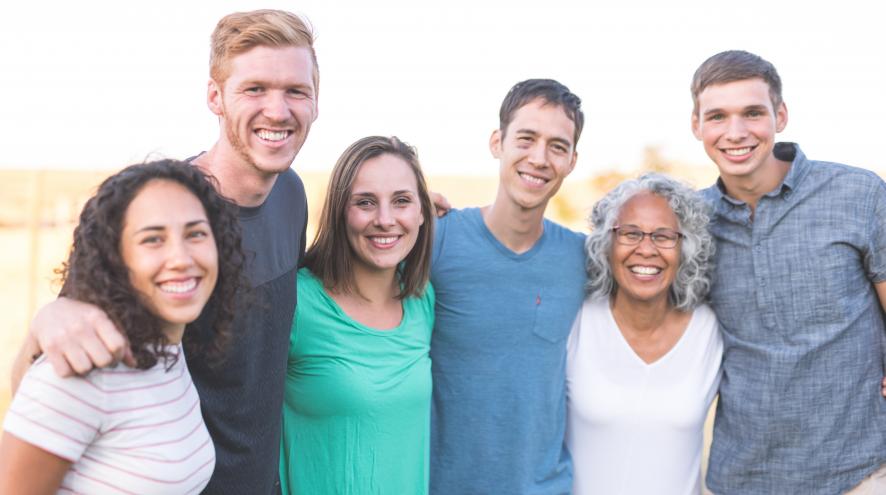Helping teens understand dementia
What are some ways you can help a teenager understand dementia, especially if someone in the family is living with it? Here are some facts and questions to inform and support.

Here are some important facts to understand
- Alzheimer's disease kills brain cells, causing them to shrink or die. When people have this disease, they forget how to do familiar things, they don't recognize the people they love, they have difficulty understanding a conversation or they may act in an unusual manner, for example, pacing around a room. These changes occur over many years and get worse over time. These actions are not their fault. Alzheimer's disease makes people act in this way.
- Right now, no one knows what causes Alzheimer's disease and there is no cure. There are drugs that can help with some of the symptoms of the disease so people are less anxious and can maintain their independence for a longer period of time. But, eventually individuals will lose many of their abilities and will need to rely upon others to take care of them.
- Alzheimer's disease was named after a scientist called Dr. Alois Alzheimer who discovered the disease around 1906. It usually affects people who are over 65 years old. But occasionally the disease affects people who are younger than that, for example, in their 40s and 50s. Both men and women can get the disease, but not young people. As the population ages, you will probably know more people who are getting Alzheimer's disease. It also means more people are caring for someone with the disease.
Can you relate?
If you were the person with Alzheimer's disease, what are some feelings you might experience? (Refer to list of emotions at bottom of page.)
Is dementia affecting your life?
If your mom or dad is caring for a grandparent, you have probably noticed some changes. They may be very busy with work, home and caring for your grandparent. You may notice that your parents are tired, impatient or don't have enough time for you. They may ask you to help out.
You may have many feelings about this, such as resenting the demands on your time, being uneasy about having friends over, or feeling helpless because you don't know what to do. First of all, if this is happening to you, talk to your parents, teacher or an adult you trust about how you are feeling. Second, contact the Alzheimer Society to get help and to learn more about the disease. One example of coping with your feelings is to keep a journal.
Even though your grandparent may not be able to do many things, some of his/her abilities and interests will remain. You may be surprised how much you can help.
Here are a few examples. Let's say, your grandfather has Alzheimer's disease. If your grandfather liked to listen to music, you can share your favourite artist's CD. If he liked to garden, he may enjoy helping you with yard work. Perhaps your grandfather played sports. He probably would enjoy your company on a regular walking program after school. Or, maybe the two of you could wash the car.
Caring for someone with Alzheimer's disease is not easy. Some days will be frustrating and other days will be better. Do the best you can. Remember, when you spend time with the individual in a meaningful way, he/she will always feel your love.
Make a personal biography: Become a Journalist
Your grandparent will remember things from his/her past; why not interview your grandmother or grandfather on what it was like to be a teen? Tape the interview and write up a personal biography to share with other family members.
- Who was your best friend?
- What did you do after school?
- Did you have a part-time job?
- What chores did you do around the house?
- What kind of clothes did you wear?
Additional resources
- Young Carers Project, a project working together with young carers to share information and resources, educate the community about the existence and needs of young carers and to have involvement in national and international young carer movements.
- Download our list of other resources.
